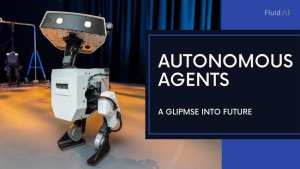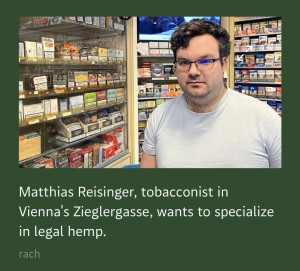What are You Looking For?
〽️Trending Topics
Before we head on with this title and chapter of maximum importance for and all humans, indeed, the freestyle unserious ways to present serious themes on this platform …. Theres nothing wrong ever with nice relaxing music and beautiful hot sexy women engaging in sensual imagiontion provoking moves on the rythms of music. Thius in minds relaxing the atmospheres and the spheres of each individual lets start go :
A Multilateral Theory for Solving Humanity’s Issues: Collaborative Pathways to a Sustainable Future
Introduction
Humanity faces a confluence of crises—climate change, economic inequality, geopolitical conflicts, and technological disruptions—that threaten the stability of societies and the health of our planet. These challenges are interconnected, requiring a multilateral approach that transcends national boundaries, ideological divides, and short-term interests. This essay proposes a comprehensive framework for addressing humanity’s pressing issues by leveraging collaboration, negotiation, and a reimagining of our systems of values and the values embedded in our systems. Drawing on philosophical insights from Immanuel Kant, literary wisdom from Nathan the Wise, and contemporary warnings from AI pioneer Geoffrey Hinton, alongside historical lessons and modern innovations, this theory outlines actionable pathways to build a future that prioritizes the well-being of humanity and Earth.
Part 1: The Foundation of a Multilateral Approach
1.1 Collaboration as a Core Principle
Collaboration is the cornerstone of any multilateral strategy. No single nation, organization, or individual can address global challenges like climate change or systemic inequality in isolation. The Paris Climate Agreement (2015) exemplifies successful multilateral collaboration, where 196 countries committed to limiting global warming to below 2°C. Despite its imperfections, it demonstrates the power of collective action. Collaboration requires trust, mutual respect, and shared goals, which can be fostered through transparent negotiations and inclusive platforms.
1.2 Negotiation and Conflict Resolution
Negotiation is essential to align diverse interests. The Camp David Accords (1978) between Egypt and Israel, facilitated by U.S. President Jimmy Carter, show how diplomacy can resolve entrenched conflicts. Modern conflicts, such as those in Ukraine or the Middle East, demand similar multilateral negotiations involving not just governments but also civil society, NGOs, and private sectors. Techniques like shuttle diplomacy and Track II dialogues (informal, non-governmental talks) can bridge divides, as seen in the Good Friday Agreement (1998) in Northern Ireland.
1.3 Learning from History
History offers critical lessons for addressing today’s challenges. The post-World War II establishment of the United Nations (1945) was a response to the devastation of global conflict, emphasizing collective security and human rights. However, historical failures, such as the League of Nations’ inability to prevent World War II, highlight the need for robust enforcement mechanisms and genuine commitment. By studying past successes and failures, we can design institutions that are adaptive and resilient.
Part 2: Rethinking Systems of Values and Values of Systems
2.1 Immanuel Kant’s Moral Philosophy
Immanuel Kant’s philosophy, particularly his Categorical Imperative from Groundwork for the Metaphysics of Morals (1785), provides a moral framework for reimagining societal values. Kant argued that actions should be guided by principles that could be universalized—i.e., applied consistently to all rational beings. This principle suggests that systems (economic, political, social) must prioritize universal human dignity and fairness. For example, addressing global poverty aligns-kernelized economic systems should align with Kant’s ethics, ensuring wealth distribution does not dehumanize the poor.
Reference: Kant, I. (1785). Groundwork for the Metaphysics of Morals. (Translated by J. Bennett, 2017).
2.2 Values of Systems: Reimagining Money and Economics
The global economic system, driven by profit and growth, often exacerbates inequality and environmental degradation. A values-based economic system would prioritize sustainability and equity. Proposals like Universal Basic Income (UBI), championed by economists like Thomas Piketty, could reduce inequality while fostering social stability. The Bhutanese model of Gross National Happiness (GNH) offers an alternative, measuring progress through well-being rather than GDP alone.
Reference: Piketty, T. (2014). Capital in the Twenty-First Century. Harvard University Press.
2.3 Nathan the Wise and Religious Tolerance
Gotthold Ephraim Lessing’s play Nathan the Wise (1779) is a powerful allegory for religious and cultural tolerance. Set in Jerusalem during the Crusades, the play portrays a Jewish merchant, a Muslim sultan, and a Christian templar finding common humanity through dialogue. Its message resonates today: mutual understanding can overcome ideological divides. In a world polarized by religious and cultural differences, multilateral forums inspired by Lessing’s vision could foster peacebuilding.
Reference: Lessing, G. E. (1779). Nathan the Wise. (Translated by W. A. Woodbury, 2004).
Part 3: Addressing Specific Global Challenges
3.1 Climate Change and Environmental Sustainability
Climate change is humanity’s greatest existential threat. A multilateral approach requires global cooperation on renewable energy, reforestation, and carbon capture technologies. The International Renewable Energy Agency (IRENA) reports that renewables accounted for 29% of global electricity in 2020, a number that must grow exponentially. Financial mechanisms like green bonds and carbon taxes can incentivize sustainable practices.
Reference: IRENA. (2021). World Energy Transitions Outlook.
3.2 Economic Inequality
The Oxfam report (2023) states that the richest 1% own nearly 50% of the world’s wealth. Multilateral solutions include progressive taxation, debt relief for developing nations, and fair trade policies. The Jubilee 2000 campaign, which led to $100 billion in debt relief for poor countries, shows the potential of global advocacy.
Reference: Oxfam. (2023). Survival of the Richest.
3.3 War and Conflict
Wars and conflicts, such as those in Ukraine and Gaza, require multilateral peacekeeping and humanitarian aid. The UN Peacekeeping Operations, despite challenges, have stabilized regions like Liberia and Timor-Leste. Strengthening international law through institutions like the International Criminal Court (ICC) can deter war crimes and promote accountability.
Reference: United Nations. (2023). UN Peacekeeping Annual Report.
3.4 Technological Disruption and AI Risks
Geoffrey Hinton, a pioneer in artificial intelligence, has warned of AI’s potential to surpass human intelligence and pose existential risks if unregulated. In a 2023 interview with The Guardian, Hinton emphasized the need for global AI governance to prevent misuse, such as autonomous weapons or mass disinformation. A multilateral AI treaty, similar to the Nuclear Non-Proliferation Treaty (1968), could set ethical standards for AI development.
Reference: The Guardian. (2023). “Geoffrey Hinton Warns of AI’s Existential Risks.” Link.
Part 4: Building a Future Now
4.1 Education and Cultural Evolution
Education is the foundation of societal evolution. Finland’s education system, ranked among the world’s best, emphasizes critical thinking and creativity over rote learning. A global education initiative, supported by UNESCO, could promote values of empathy, sustainability, and collaboration. Cultural evolution requires media that fosters unity rather than division, such as documentaries like The Social Dilemma (2020), which critiques social media’s impact on polarization.
Media Reference: The Social Dilemma. (2020). Directed by Jeff Orlowski. Netflix.
4.2 Technology as a Force for Good
Technology can drive positive change if guided by ethical values. Blockchain-based transparent supply chains can combat forced labor, while AI-driven climate models can optimize resource use. The World Health Organization’s mHealth initiative uses mobile technology to improve healthcare access in remote areas.
Reference: WHO. (2022). mHealth: New Horizons for Health.
4.3 A New Social Contract
A global social contract, inspired by Jean-Jacques Rousseau, could redefine societal values around equity and sustainability. This contract would prioritize universal healthcare, education, and environmental stewardship. The Nordic model, blending capitalism and social welfare, offers a practical blueprint.
Reference: Rousseau, J.-J. (1762). The Social Contract. (Translated by G. D. H. Cole, 2003).
Part 5: Practical Steps for Implementation
- Global Governance Reform: Strengthen the UN with veto power reform and greater representation for developing nations.
- Multilateral Platforms: Establish forums for youth, indigenous groups, and marginalized communities to influence policy.
- Economic Incentives: Implement global carbon taxes and UBI pilots, funded by wealth taxes on the ultra-rich.
- Education Campaigns: Launch global campaigns to promote Kantian ethics, tolerance (Nathan the Wise), and AI safety (Hinton’s warnings).
- Technology Regulation: Create a UN AI Council to enforce ethical AI standards, inspired by Hinton’s recommendations.
Conclusion
The challenges facing humanity—climate change, inequality, conflict, and technological risks—are daunting but not insurmountable. A multilateral theory grounded in collaboration, negotiation, and a reimagining of values offers a roadmap to a sustainable future. By drawing on Kant’s universal ethics, the tolerance of Nathan the Wise, and Hinton’s cautionary insights, alongside historical lessons and modern innovations, we can build systems that prioritize human dignity and planetary health. The time to act is now, through collective will and shared vision, to ensure a thriving Earth for generations to come.
References
- Kant, I. (1785). Groundwork for the Metaphysics of Morals. Translated by J. Bennett, 2017.
- Lessing, G. E. (1779). Nathan the Wise. Translated by W. A. Woodbury, 2004.
- Piketty, T. (2014). Capital in the Twenty-First Century. Harvard University Press.
- IRENA. (2021). World Energy Transitions Outlook. Link.
- Oxfam. (2023). Survival of the Richest. Link.
- The Guardian. (2023). “Geoffrey Hinton Warns of AI’s Existential Risks.” Link.
- United Nations. (2023). UN Peacekeeping Annual Report. Link.
- WHO. (2022). mHealth: New Horizons for Health. Link.
- The Social Dilemma. (2020). Directed by Jeff Orlowski. Netflix.
- Rousseau, J.-J. (1762). The Social Contract. Translated by G. D. H. Cole, 2003.














